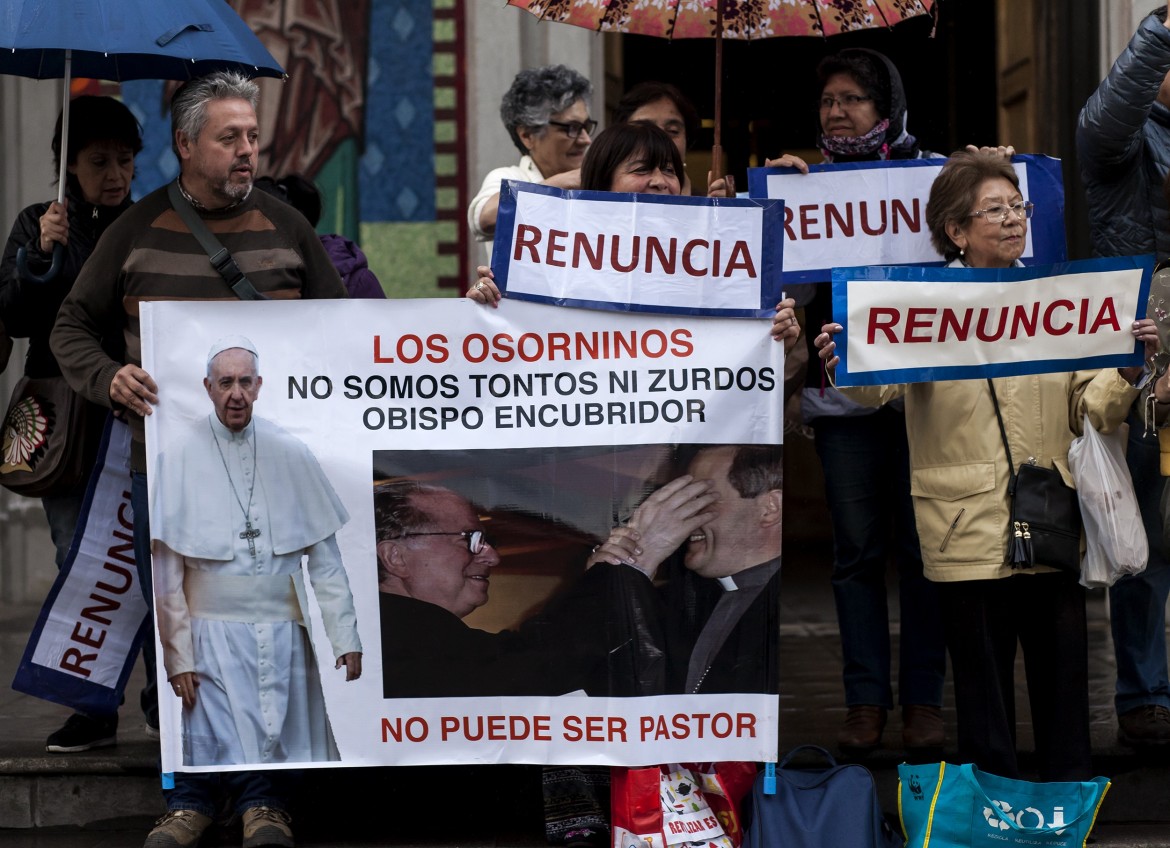Analysis
Pope Francis will finally deal with pedophile priests in Chile
After initially downplaying the uproar against serial sexual predators in the Chilean church, Pope Francis is preparing to meet this week with bishops in Rome to hold perpetrators responsible and ‘restore trust in the Church.’

There will be three days of closed door meetings between Pope Francis and the Chilean bishops between May 15-17, to confront the numerous cases of pedophilia reported in the Andean country in the past few years, involving as perpetrators dozens of priests and members of religious orders.
It is likely that some heads will roll: that of the Bishop of Osorno, Juan de la Cruz Barros, the main object of the accusations, but also those of other bishops and prelates whose shared responsibility and culpable silence were revealed by the investigations conducted by the Pope’s special envoys to Chile, Monsignor Scicluna, the Archbishop of Malta, and Don Bertomeu of the Congregation for the Doctrine of the Faith.
The announcement of the closed door meeting between Francis and the Chilean bishops, which had been expected for weeks, was sent out Saturday by the press office of the Holy See. The Pope, the press release said, “called to intervene by the extraordinary circumstances and challenges resulting from the abuses of power, sexual abuses and abuses of conscience that have occurred in Chile during the past decades, holds it necessary to examine on a profound level their causes and consequences, as well as the mechanisms that have in some cases led to concealment and to serious mistreatment of the victims.”
Thirty-one of the 33 active Chilean bishops (plus two retired) will participate, and Cardinal Ouellet, prefect of the Vatican Bishops’ Congregation, the judiciary official overseeing the bishops in the whole world, will be at the side of the Pope. The goal, the press release explains, is to “discern together what the responsibility of all and each was for these devastating wounds, and also to study adequate and long-term changes that would stop such acts, always reprehensible, from occurring again. It is of fundamental importance to restore trust in the Church through the good shepherds” who “are able to meet the suffering of the victims and work in a determined and indefatigable way for the prevention of abuses.”
The history of sexual abuses in Chile is not a recent affair, but is quite old, even as it has always been swept under the rug. It was a situation made worse by Francis himself, who has obviously become aware of the errors he has committed and, after apologizing publicly, seems intent to repair the damage.
According to BishopAccountability.org, a US group monitoring cases of pedophilia, from 2000 until today around 80 Chilean priests have been accused of sexually abusing children. The scandal did not break out until 2011, when the Holy See convicted Don Fernando Karadima, who had a parish in Santiago for many years, a serial pedophile guilty of numerous crimes involving children. It came to attention most of all when Pope Francis promoted Monsignor Barros to Bishop of Osorno, a “disciple” of Karadima accused by many (together with at least three other bishops) of having been aware of the crimes being committed by his mentor.
Protests were organized by the faithful in Chile, particularly in Osorno. Francis himself not only failed to respond to the complaints, but instead contributed to amplifying them. First, in May 2017, when he met a number of Catholics from Osorno in an audience, he told them there was no evidence against Barros and that the faithful should not be deceived by the stupid people who had set this up. Then, in January, during his trip to Chile, he told journalists that “there is not a single piece of proof against Barros” and that it was all “slander.” It was a highly problematic statement (criticized even by the US Cardinal O’Malley, head of the Holy See Commission against Child Abuse set up by Pope Francis himself), that he partly walked back on his return flight from Lima to Rome, albeit clumsily: “The word ‘proof’ was not the best. I would rather say ‘evidence.’”
Francis must have soon realized he had made a royal mess of things, and thus he decided to send two “investigators” to Chile, Scicluna and Bertomeu, who, after interviewing more than 60 witnesses, presented to the Pope a dossier that proved to be a turning point in the affair. As a result, Francis called a number of Chilean bishops to Rome and presented them with a letter of mea culpa. “I admit that I have made grave errors in the judgment and perception of the situation,” particularly due to “the lack of truthful and balanced information,” the Pope wrote, implicitly accusing those who should have given him accurate information and failed to do so, such as Cardinal Errazuriz, a member of the “C9,” the council of cardinals that is working together with Francis on the reform of the Roman Curia, and the Chilean Papal Nuncio, Monsignor Scapolo, a strong supporter of Barros.
Then, at the end of April, he hosted three of the victims of the pedophile priest Karadima at the Vatican, who received Francis’ apologies but also said they were now expecting severe punishments against all the guilty: the bishops who covered up the abuses and the priests who committed them.
Next week, at the Vatican, the whole body of Chilean bishops, more divided and wounded than ever before, will be called to account.
Originally published at https://ilmanifesto.it/pedofilia-in-cile-il-papa-approfondisce/ on 2015-10-08
